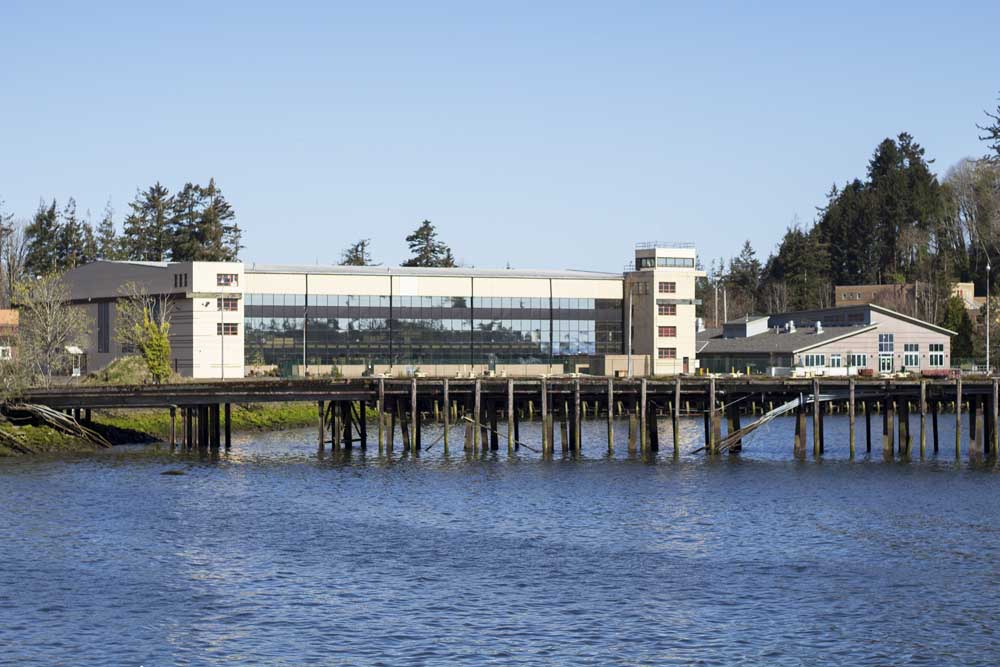Pacific Seafood lawsuit settled
Published 5:00 pm Monday, April 2, 2012
Pacific Seafood Group has successfully fought off a class-action lawsuit by Oregon commercial fishermen that once seemed a major threat to the Clackamas-based company.
The fishermen claimed that Pacific used its immense market clout to suppress the price it paid for groundfish, Dungeness crab, shrimp and other products. They initially sought as much as $520 million in damages and demanded that Pacific be broken up.
What they will get instead is no monetary damages and a Pacific that remains intact. Pacific did make several pro-competitive pledges such as a promise not to concentrate its in-house fleet of fishing vessels in a single port or on a single commodity.
Rather than go through the risk of trial and appeal, we decided that securing this deal helps establish more competitive conditions immediately rather than three years from now, said Mike Haglund, the Portland lawyer who conceived and led the fishermens case.
Todd Whaley, the Brookings fisherman who along with his father, Lloyd, was initially the only named plaintiff, said the settlement is bittersweet.
Im pleased that we obtained the pro-competitive aspects that we did, Whaley said.
Pacific Seafood Group has processing plants up and down the Oregon Coast, including a facility in Warrenton, and as far away as Canada and Alaska.
Hammond fisherman Dennis Sturgell, who testified at Pacific Seafood Groups trial last March, said he believed the seafood giant did good work and benefited fishermen.
Pacific Group is the best thing to happen to the coast, Sturgell said. Theyve created a ravenous appetite for seafood.
During his testimony, Sturgell, whod regularly delivered shipments to Pacific Seafood Group in Warrenton, said he was fired for making deliveries to the companys competitors. At the time, he said he believed the company was trying to make an example out of him.
In a phone interview today, Sturgell said hes been rehired and has a good relationship with the company, to which hes been delivering seafood for around 20 years.
Sturgell said his views are likely not shared by other fishermen.
Theres so much jealousy in the fishing industry, he said. If you catch more than someone else, youre a no-good S.O.B.
Steve Fick, owner of Fishhawk Fisheries in Astoria, said hes watching the aftermath of the settlement, but admits that many people who werent intimately involved with it dont know how it will affect the industry.
I dont have a dog in this fight, he said.
In an unusual and carefully negotiated statement, the fishermen acknowledged that the evidence they collected in the 22 months since the case was filed did not support some of their suspicions about Pacific.
Extensive discovery revealed that some of what fueled the antitrust concerns in this case has arisen out of mistrust and a lack of understanding between fishermen and seafood processors, the fishermen said in a written statement. Plaintiffs also acknowledge that Pacific Seafood Group and Ocean Gold Seafoods (another processor initially included as a defendant) have made substantial investments that contributed to the development of international markets for West Coast seafood products that benefit the industry.
It is a big win for Frank Dulcich, who built Pacific from a single fish shop in Southeast Portland to one of the largest processors and wholesalers in the country.
Even as he was fighting the class-action alleging Pacific was already too large and powerful, Dulcich led continued expansion. Last October, Pacific bought Coast Seafoods of South Bend, Wash., one of the largest oyster companies in the country.
U.S. District Court Judge Owen Panner granted the plaintiffs class status in February, a key legal victory for the fishermen. But there were also clear signs the fishermens case had big holes.
They reduced their damage claims to between $50 million and $75 million. The fishermen opted to drop the enormous Dungeness crab market out of their case altogether after determining that Pacific Seafoods share of the market was not large enough to warrant an antitrust claim.
Haglund said Monday he remains confident his fishermen clients would have won at trial. Mike Esler, a Portland lawyer who represented Pacific, disagreed. As the months of discovery progressed, Esler said, it became increasingly apparent that despite Pacifics huge presence, Northwest fishermen have other options. Many spend part of each season in Alaska, where Pacific has much more limited operations.
Processors dont have market power over fishermen because fishermen have propellers, Esler said.
The litigants agreed in February to mediate the case before U.S. District Court Judge Michael Hogan. The Eugene judge has established a reputation for successfully resolving complex legal disputes.
This case could have gone on for years, including appeals, Hogan said in a press release. The fishermen and the processors, especially Pacific Seafood Group, are to be commended for taking a statesmanlike approach to resolving this complicated case.
Panner must approve the settlement. He will hold a hearing on the matter in May.
Haglund and his law firm will get $2.9 million in legal fees and expenses under the agreement. Haglund said his firm agreed to reduce its normal fees by a third. The money will come from Pacific Seafoods insurer.
The pro-competitive measures agreed to by Pacific include:
Ending its relationship with Ocean Gold Seafoods in 2016. Westport, Wash.-based Ocean Gold sold all its product to Pacific. Fishermen hope the end of that contract will increase competition.
Pacific and Ocean Gold will report average wholesale prices to a seafood market reporting service if other processors do the same. Increasing transparency would help fishermen negotiate better prices, they believe, particularly in the shrimp market.
Pacific and Ocean Gold will accept fish scrap from new processors. Disposing of fish waste is a major barrier to entry in the processing industry. Pacific and Ocean Gold also agreed for 10 years not to retaliate against Todd and Lloyd Whaley and their two fellow named plaintiffs, Jeff Boardman of Depoe Bay and Brian Nolte of Brookings.





